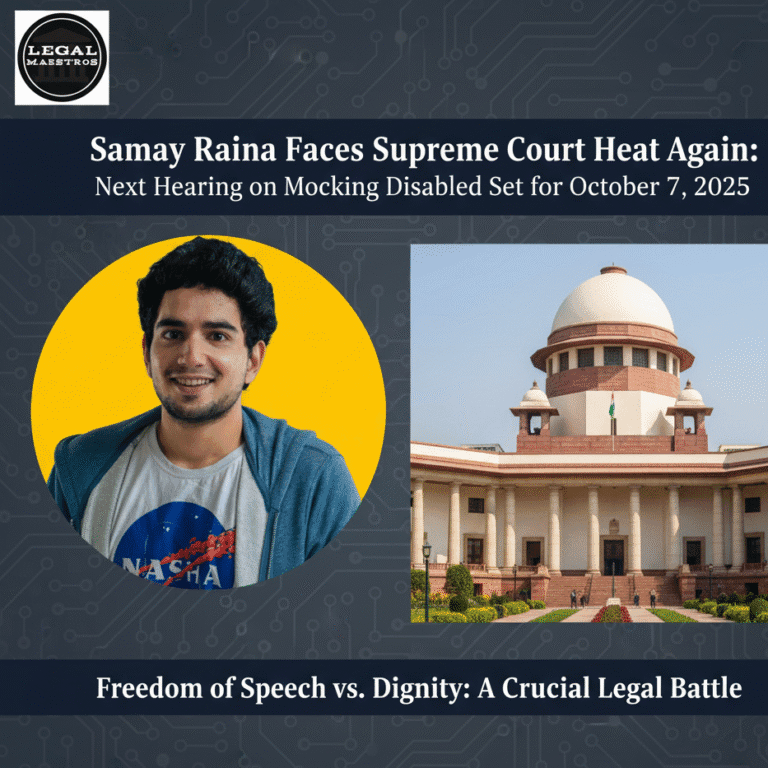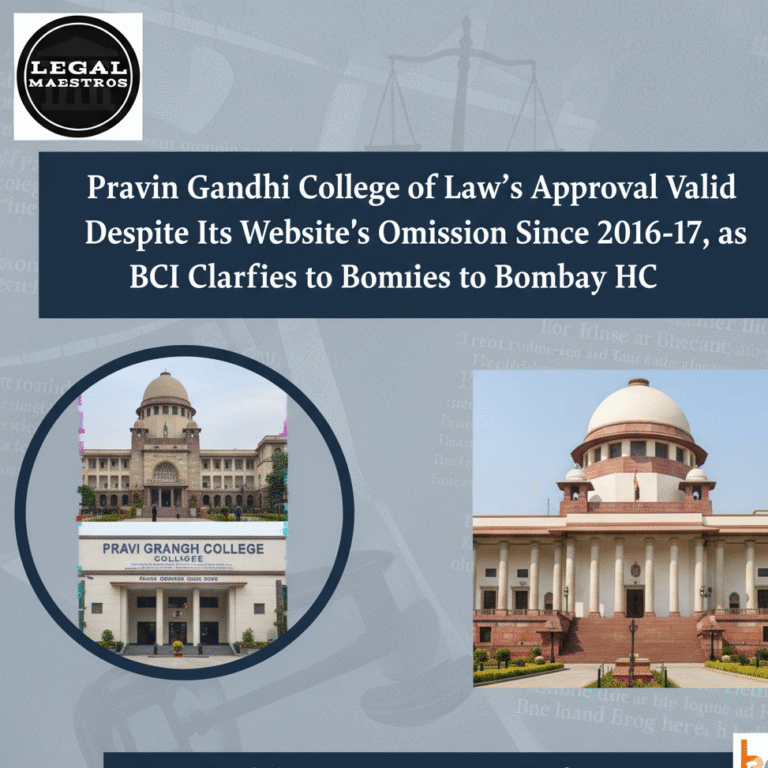
A crucial issue in criminal law was addressed by the Supreme Court of India in the case of Sachin v. State of Maharashtra (2025). The topic at hand was whether or not a sentence may be increased for a convicted individual when the sole appeal that was lodged was by the convicted individual himself.
The Supreme Court was able to underline the essential concept that an appeal must not put the appellant in a worse situation than they were in before the appeal was filed via this particular case. In accordance with the Criminal Procedure Code (CrPC), this ruling strengthens constitutional protections, natural justice, and legislative safeguards.
A Concise Review of the Situation
Sachin, the appellant, was found guilty of penetrative sexual assault on a child who was four years old by the Special Court in Warora, Maharashtra.
The conviction was based on Sections 3(a) and 4 of the Protection of Children from Sexual Offences Act, 2012 (POCSO Act), as well as Section 376 of the Indian Penal Code. Sachin was found guilty of the crime in 2013, and he was sentenced to seven years of severe jail for his actions.
It was at the High Court that he filed an appeal against this conviction, with the goal of either being exonerated or having the sentence reduced. Particularly noteworthy is the fact that neither the State nor the complaint submitted any appeals for the purpose of increasing the punishment.
However, the High Court, although upholding his conviction, determined that the charge was one of aggravated sexual assault (as defined by Section 5(m) of the POCSO). As a result, the case was referred back to the trial court so that it might be sentenced more severely in accordance with Section 6 of the POCSO Act. As a consequence of this, the trial court decided to condemn him to life in prison.
Important Concerns in the Legal System
The most important legal question that was brought before the Supreme Court was whether or not the High Court had the authority to increase the sentence in an appeal that was entirely submitted by the accused, without regard to any appeals from the State, the victim, or the complainant, and without providing the accused with an adequate chance to be heard on the augmentation.
In this particular instance, numerous interconnected clauses were discussed:
In the Criminal Procedure Code, Section 386, the appeal court’s powers are outlined.
Section 377 of the Criminal Procedure Code, which gives the state the authority to appeal improper sentences.
Section 401 of the Criminal Procedure Code, which gives the High Court the authority to make revisions.
In accordance with Articles 14 and 21 of the Constitution, fundamental rights are guaranteed with regard to justice and due process.
Observations Made by the Supreme Court
The three members of the bench, Justices B.V. Nagarathna and Satish Chandra Sharma, provided an in-depth study of the legislative provisions and the precedents that had been established before.
When the appeal is filed by the convict, the Court reaffirmed that Section 386(b)(iii) of the Criminal Procedure Code allows for the modification of the sentence only to the degree of reduction, and not augmentation.
According to the decision, a convicted individual cannot be subjected to a more severe punishment as a consequence of appealing against his own conviction.
A violation of the principle of no reformatio in peius, which is a Latin maxim that states that no one should be worse off by appealing, would occur if the sentence were to be increased in such a hypothetical scenario.
Moreover, the Court made the observation that the revisional competence granted by Section 401 of the Criminal Procedure Code cannot be utilized in a covert manner while evaluating an accused person’s appeal.
In the event that the State or the victim has not submitted a request for augmentation in accordance with Section 377 or 378 of the Criminal Procedure Code, the High Court is unable to turn the appeal into a de facto revision in order to raise the appropriate sentence.
It is a violation of natural justice.
It was brought to the attention of the Supreme Court that the High Court had failed to provide the appellant with an appropriate chance to dispute the additional charges or punishment for the case.
However, the norms of natural justice were not satisfied by the simple act of issuing a show-cause notice without first conducting an appropriate hearing. Because of this, the ruling that increased the sentence from seven years to life imprisonment was deemed to be legally unsustainable.
Not only that, but the appellant had already spent more than eleven years in prison as a result of the extended sentence, which was far longer than the term that was first given by the trial court.
What the Supreme Court Decided
As part of its decision, the Supreme Court overturned the ruling of the High Court that increased the sentence, as well as the later order of the Special Court that carried out the sentence enhancement. Consequently, the initial sentence of seven years in jail that had been handed down by the trial court was reinstated.
Utilizing the authority granted to it by Article 142 of the Constitution, which gives it the authority to carry out entire justice, the Court issued an order for the immediate release of the appellant, taking into consideration the fact that he had already spent more time than the initial sentence.
It was also highlighted by the Court that trial courts need to exercise caution while formulating charges and imposing punishments, making sure that they are in accordance with the real offenses that were successfully proven.
Incorrect sentence may lead to protracted imprisonment, which is a violation of the constitutional rights of the individual who was convicted.
In the case of Sachin v. State of Maharashtra, the Supreme Court of India issued a verdict that upheld the integrity of procedural fairness and legal certainty alike. Convicts are protected by this verdict, which ensures that they will not be subjected to more severe repercussions just for exercising their fundamental right to appeal.
A judicial check is also placed on the abuse of appellate or revisional powers in criminal cases, which is another benefit of this legislation. As a result of this verdict, a precedent will be established that will prohibit any future judicial overreach over the enhancement of penalty without increasing procedural fairness.
For any queries or to publish an article or post on our platform, please email us at contact@legalmaestros.com.







